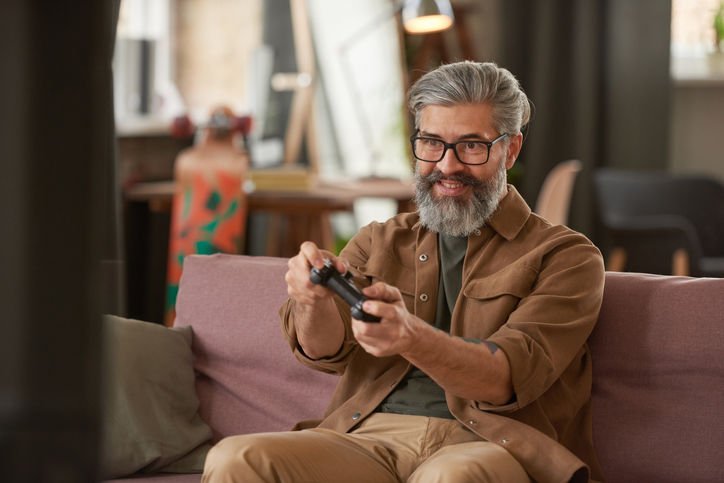Older gamers get social during lockdowns
Seniors turned to video games for social connection and mental health during the pandemic. Were you one of them?

Key Points
42% of older Australians used video games during the pandemic.
A main reason was to increase mental stimulation.
Video games and gaming has moved into mainstream culture.
What did you do to stay in touch with others during pandemic restrictions? You may have binge-watched TV, checked in on friends and neighbours, or even mastered the art of the Zoom video call. But one activity that a surprising number of seniors have taken up recently is video games.
Researchers found that nearly half (42%) of older Australians (aged 65 and over) used video games to keep their minds active over the pandemic. One of the key reasons many seniors reported playing video games was to increase mental stimulation and potentially help fight dementia.
The study by the Interactive Games & Entertainment Association (IGEA) and Bond University found:
87% of senior participants said they thought video games may increase mental stimulation.
81% of senior participants also said video games may help fight dementia.
77% of all people surveyed said video games can help a person’s emotional wellbeing.
- 70% said video games can fulfill social needs.
- 74% said video games could help continue social connections and maintain relationships with friends and family.
- 49% of parents play online games with their children.
- 36% of adults have met new friends through playing video games.
Bond University’s Professor Jeffrey Brand – who has run the Digital Australia series of research for 16 years – said video games were more than just a source of entertainment for many during the pandemic.
“They were also a means for connection, communication, and social interaction between friends and family, as well as education and comfort for children,” he said.
IGEA’s Chief Executive Officer, Ron Curry said the research demonstrated the social and mental benefits of video games.
“For the first time since we started the Digital Australia research series, Australians preferred playing video games over watching free-to-air TV, second only to streaming TV and movies.”
Once the preserve of geeks and those who may display the marginal personality characteristics of the characters of the TV show ‘Big Bang Theory’, gaming is becoming mainstream across the generations, and not just a fringe hobby.
- The average Australian gamer is now 35 years old – a year older than the previous two reports. They’ve been playing video games for around 12 years and play an average of 83 minutes a day with most play occurring in the evening.
- Almost half of Australian video gamers are female, and nearly half use online services for gaming.
- Playing video games to keep the mind active was the number one reason older Australians turned to gaming (and the second biggest reason across all age groups).
- Adults of retirement age played for 61 minutes a day on average – a two-minute increase from the previous year.
To learn more about the study, visit the IGEA website.
Source: IGEA








